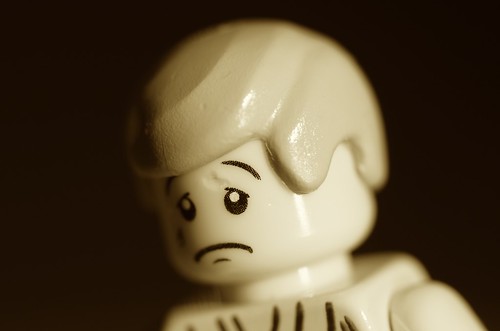According to the NIMH depression affects over 21 million adults and adolescents in the United States and is the leading cause for people age 15-44 to be “disabled.” Oddly enough, New Jersey has the third lowest incidence of depression when broken down by state (I have lived here all my life and find that a little hard to believe). The long and the short of it is that bad things happen to us and the ones we love. With all the terrible stories we hear and see on the news, combined with personal losses and struggles, it is not uncommon for us to feel sad or blue, but what is the difference between having the blues and depression? The following article discusses the various forms of depression, common symptoms, and treatment options.
Am I depressed or Just Sad?
At some point or another, everyone feels sad. The difference, however, between feeling “sad” or “blue” and depression is that sadness and disappointment generally only last a few days and does not interfere with your daily life. Depression, however, can last weeks, months or even years and affects your daily life. The three most common types of depression are:
1- Major Depressive Disorder/Major Depression. This is the most severe type of depression that greatly interferes with a person’s ability to eat, sleep, work, and enjoy things they once found to be pleasurable. This type of depression is disabling and can occur as a single episode, but generally it is experienced as multiple episodes over the course of one’s life.
2- Dysthymic Disorder/Dysthymia. This form of depression is a milder form of depression that lasts for an extended period of time (2 years or more). With Dysthymia, a person may still have difficulty functioning, but not to the extent of more severe forms of depression. As with Major Depression, this can occur as a single episode or multiple episodes in a lifetime.
3- Minor Depression. This form of depression is less severe and shorter in duration, with symptoms lasting for only 2 weeks or more. Left untreated, however, those suffering from minor depression have a higher chance of developing Major Depressive Disorder
How do I Know if I am Depressed?
There are several common signs and symptoms of depression. If you notice five or more of these symptoms “during a two-week period that represent a change from previous functioning,” it is suggested that you speak to your primary care doctor or mental health professional because you could be experiencing clinical depression.
1- Feelings of sadness/depressed mood
2- Loss of interest or pleasure in things you used to find interesting or enjoyable, including sex
3- Feelings of pessimism, negativity or hopelessness
4- Irritability, anxiety, or restlessness
5- Feeling tired or having less energy than usual
6- Changes in weight or diet, such as weight loss or weight gain, overeating or eating too little
7- Feelings of helplessness or guilt or feeling worthless
8- Difficulty concentrating difficulty remembering things or an inability to make decisions
9- Problems or a change in sleeping habits, such as insomnia, sleeping too much or interrupted sleep
10- Physical feelings of pain, including digestive problems and headaches that persist despite treatment
11- Thoughts of wanting to die or harm yourself or attempting to commit suicide
The most important thing to remember is that these are all common things that everyone experiences occasionally. The criteria for depression are only met if these symptoms persist for more than two weeks or represent a change from your “normal” functioning.
Can I Treat My Depression?
Many people who suffer from depression never get treatment. Some people may have several indicators for depression, yet never speak to their doctor or loved ones about it and therefore they are never diagnosed. Others may feel embarrassed and do not seek treatment because they may incorrectly believe that getting help for depression is a sign of weakness. However, most people who suffer from depression need some form of treatment to feel better.
The truth about depression is that it is an illness of the brain. It is caused by a combination of environmental, biological, psychological and genetic factors. It is widely believed that depression is the result of “chemicals that brain cells use to communicate,” called neurotransmitters, which are not properly balanced. It is important to remember that depression can be treated and, most importantly, it is NOT your fault.
First, in order to get treatment you must first confide in a doctor or mental health specialist that can accurately diagnose if you have depression and the type and severity. Treatment is based on many factors including, but not limited to, type of depression, severity of symptoms, medical history, and age. There are several treatment options, with the most common ones being:
1- Medication. There are several medications that are used to treat depression and, if you choose to take a medication or the doctor determines that medication may benefit you, they will likely try one of several types of medications used to treat depression such as Selective Serotonin Reuptake Inhibitors (SSRIs), Tricyclic Antidepressants (TCAs), or Monoamine Oxidase Inhibitors (MAOIs).
2- Psychotherapy. Traditional individual talk therapy, group therapy or therapy that is focused on changing certain behaviors and thinking patterns can be very beneficial in treating depression. Talking to a qualified professional, or with a support group, can help you process feelings associated with a diagnosis of depression as well as help you work through the depression and the aspects of your life that it affects. For depression that is mild to moderate, psychotherapy may actually be the best treatment. However, for more severe depression a combination of treatments may be needed.
3- Natural Medicine/Alternative Treatments. There are various natural cures and alternative treatments for depression. If you do not want to take medication, it may be possible to speak to your mental health professional about natural medicine to treat and prevent depression. Alternative therapies, such as meditation and relaxation, guided imagery and hypnosis are also alternative treatments that are frequently sought out.
4- Electroconvulsive Therapy (ECT). In cases of severe depression in which medication and psychotherapy are not working, it is possible to treat depression with ECT, formerly known as “shock therapy.” This, however, is considered a last resort when other treatment modalities have failed.
Remember that you are not alone. Speak to a friend or family member about how you are feeling and seek support from those whom you can trust. Depression can be managed and treated. It is also important to educate yourself because understanding can lessen fear and guilt and help you take the steps needed to heal.
*Clinical information obtained from:
– National Institute of Mental Health (http://www.nimh.nih.gov/health/publications/depression/complete-index.shtml)
– Diagnostic and Statistical Manual Criteria (DSM-IV)
Photo courtesy of Kristina Alexanderson via Compfight


